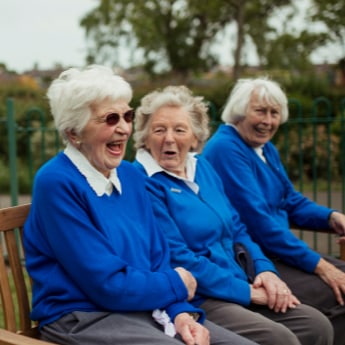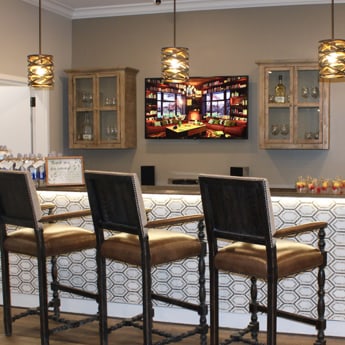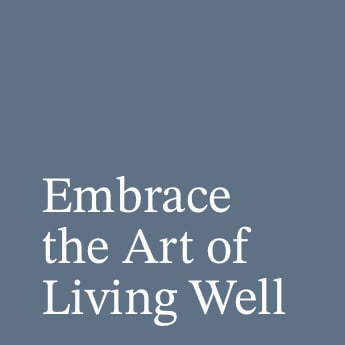Wordle’s simple five-letter puzzles have become a favorite pastime for people of all ages, but they offer particular benefits for older adults. Games do more than just entertain; they help keep the mind active, support cognitive health, and bring a sense of daily accomplishment.
Games similar to Wordle include word puzzles like Quordle, Connections, and Spelling Bee, as well as number and logic games like Sudoku, KenKen, and online jigsaw puzzles. These activities help improve memory, focus, and reasoning skills in fun, accessible ways.
In an assisted living setting, brain teasers are a great supplement to a well-rounded lifestyle that already includes social events, wellness programs, and community interaction. While group activities encourage social engagement and emotional well-being, brain games like Wordle add an extra layer of daily mental stimulation—especially for those who enjoy quiet moments of focus and routine.
Why Brain Games Matter for Seniors
Just like physical exercise strengthens your muscles, mental exercises help keep your brain strong. As we age, it’s natural to experience some cognitive changes—but keeping the mind active can slow that process and even help improve clarity, problem-solving, and memory.
Brain teasers are particularly effective because they:
- Encourage daily concentration
- Boost vocabulary and language retention
- Provide goal-oriented structure and motivation
- Support pattern recognition and logic
- Offer social interaction when played with others
Games like Wordle are especially popular because they’re short, free, and easily accessible on a phone, tablet, or computer.
Wordle: The Daily Word Puzzle
Wordle gives you six chances to guess a five-letter word using logic and clues. It’s easy to learn and only takes a few minutes per day, making it perfect for seniors who enjoy language-based puzzles.
What makes Wordle appealing:
- A fresh challenge every day
- No timers or pressure
- Color-coded hints to guide you
- Solo play or friendly competition
If you love Wordle, there are plenty of similar games you’ll likely enjoy just as much.
Games Like Wordle to Try Next
Quordle
Quordle is like Wordle—but multiplied. You try to guess four words at once using one set of guesses. It’s a step up in difficulty but still offers the same colorful feedback and no-pressure format.
Great for: Seniors looking to stretch their memory and multitasking skills.
Connections (from The New York Times)
In this game, players group together 16 words into 4 categories based on theme, logic, or association. For example, one group may include bird names, another musical instruments.
Great for: Improving categorical thinking and vocabulary.
Crossword Puzzles (Mini Edition)
The NYT Mini Crossword or USA Today Crossword offers small, daily puzzles that take about 5 minutes to solve. Unlike traditional large crosswords, these are approachable and satisfying.
Great for: Seniors who enjoy wordplay, trivia, and cultural references.
Letter Boxed
Another New York Times creation, this game gives you a square of letters and asks you to make words that use every letter. It’s a challenge of sequencing and creative vocabulary.
Great for: Seniors with strong verbal skills and a love for puzzles.
Spelling Bee
You’re given a set of seven letters and asked to create as many words as possible using at least four of them, including one letter that must be in every word.
Great for: Word enthusiasts who enjoy finding hidden patterns and combinations.

More Brain-Boosting Games Beyond Words
While word games are fun and beneficial, brain teasers also come in many other forms. If you’re more of a numbers or logic fan, there are still great options to explore.
Sudoku
Sudoku challenges your number-placement and problem-solving skills without requiring math. Choose easy levels to get started and work your way up.
Great for: Seniors who enjoy order, logic, and numerical thinking.
KenKen
A mix between Sudoku and math puzzles, KenKen helps keep arithmetic skills sharp. You fill in a grid using both logic and basic addition, subtraction, multiplication, or division.
Great for: Seniors who like a little number crunching with their puzzles.
Lumosity or Elevate Apps
These brain-training apps offer short daily games focused on memory, attention, and reasoning. You can track your progress over time and adjust the difficulty.
Great for: Seniors who want variety and structure in their brain workouts.
Jigsaw Puzzles (Online or Physical)
Puzzle-solving helps with visual-spatial reasoning and memory. Online versions like JigZone or Jigsaw Explorer let you solve puzzles at your own pace.
Great for: Seniors who enjoy a calm, meditative activity.
Logic Grid Puzzles
If you love riddles, logic grid puzzles ask you to determine relationships based on a series of clues (e.g., who lives in which house, who owns what pet). Free printable versions or digital apps are widely available.
Great for: Strengthening deduction and reasoning skills.
Making Brain Games a Daily Habit
Starting your day with a game like Wordle or ending it with a relaxing jigsaw puzzle is more than just fun—it’s part of building a routine that prioritizes mental health.
Here are a few ways to make brain teasers a regular part of your life:
- Set a daily time for your favorite game (like after breakfast or before bed)
- Join a group or club that plays puzzles together
- Track your progress or best times for added motivation
- Try new games often to keep your mind flexible
- Switch between different game types to work all areas of the brain
Social Benefits of Brain Teasers
Many of these games can be shared with friends or played competitively in a low-pressure environment. Whether you’re swapping your Wordle score with a neighbour or working through a crossword puzzle together at the community table, brain games often lead to laughter, storytelling, and connection.
Staying mentally sharp doesn’t have to be a solitary activity—it can be a wonderful way to build friendships and stay engaged.
Keeping Your Mind Sharp at The Ridge at Grandeview
At The Ridge at Grandeview, we know that staying mentally active is just as important as staying physically active. That’s why we encourage residents to enjoy daily brain games—whether it’s a quiet moment with a crossword or a lively group game night.
We offer a variety of activities that support memory, focus, and fun—from puzzles and trivia to interactive word games and tech-friendly brain training.
Schedule a tour today to explore our community and see how we support lifelong learning, wellness, and joyful living for every resident.

















